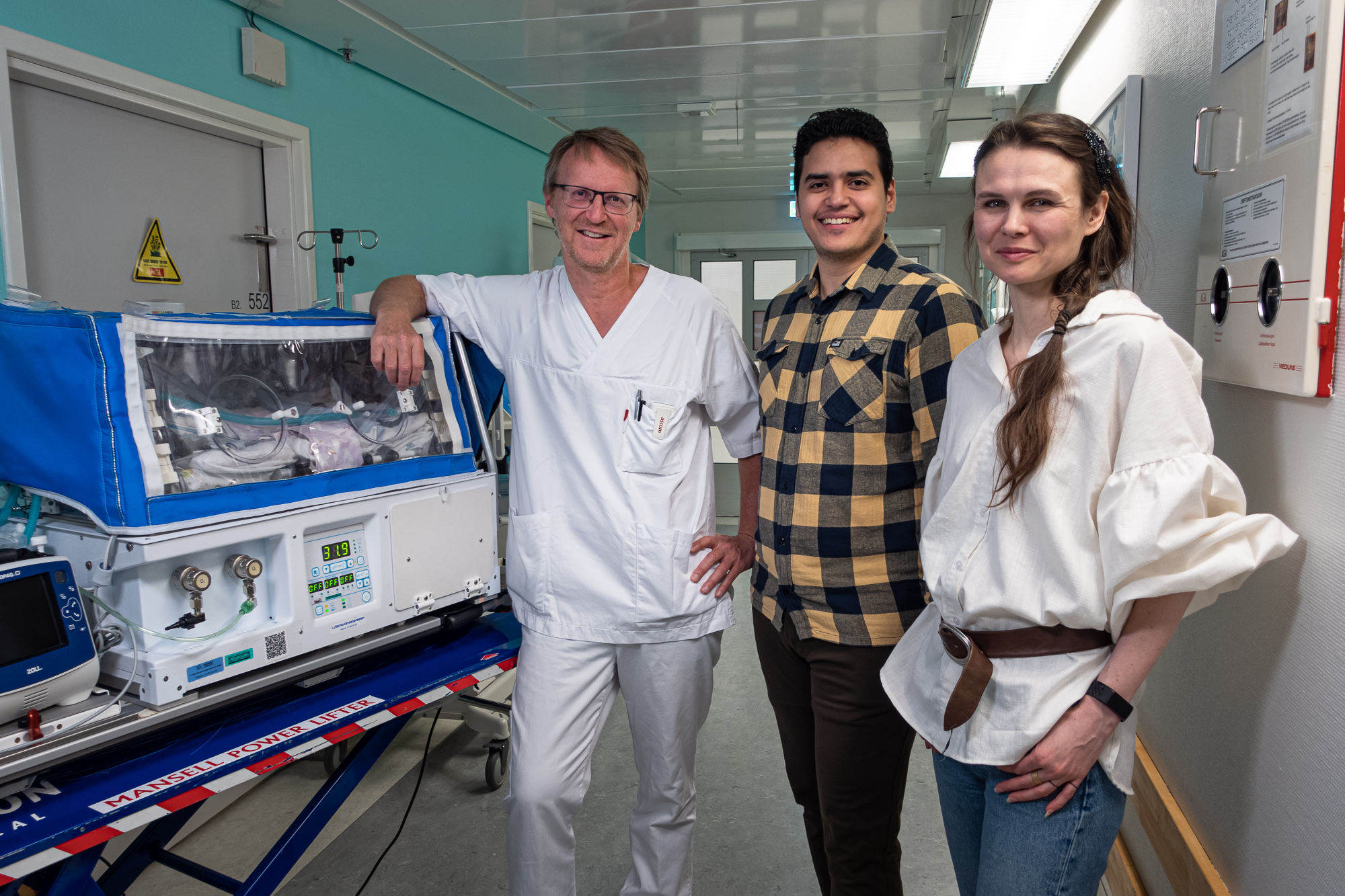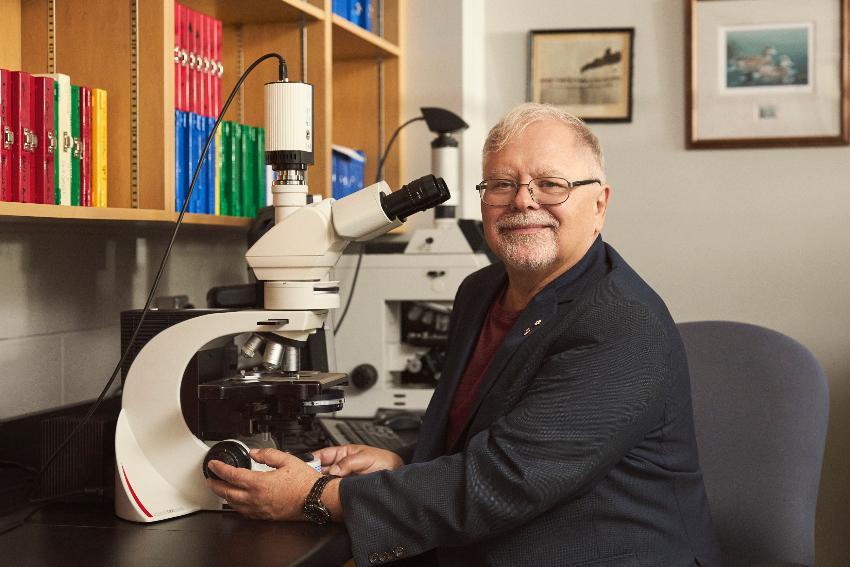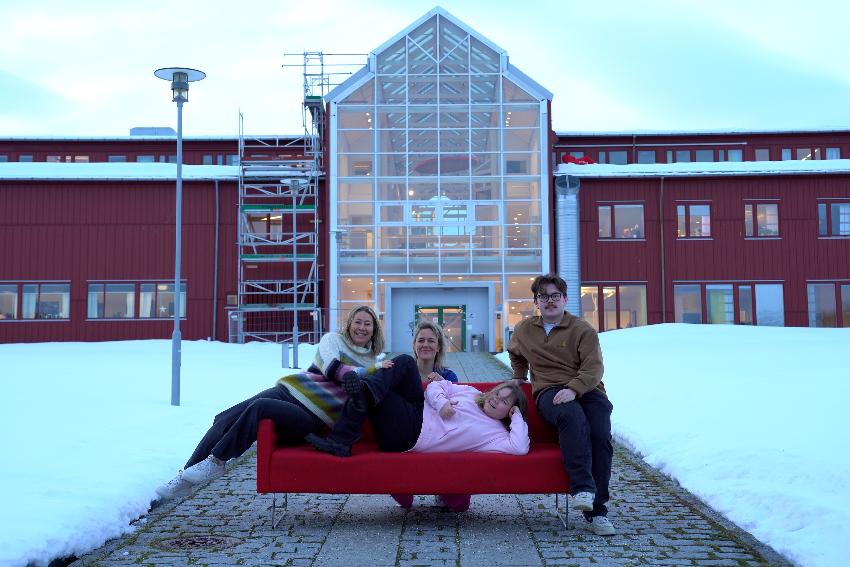Probiotics create order in preterm babies’ gut, and fight antimicrobial resistance
There are even more positives to probiotics than previously thought. As well as helping preterm babies gain a healthy gut microbiome, they reduce the chance of harmful bacteria building resistance to antibiotics.
Every year about 15 million preterm babies are born worldwide who suffer from a risk of infection and inflammation. Being born many weeks or even months before their expected due date, their immune system is less mature than in term babies, including impaired gut barrier function and quite different microbial community in the large intestine.
About the study
- The study was carried out at the Pediatric Research Group for Infections and Host-Microbe Interaction Research Group at the Centre for New Antibacterial Strategies (CANS), UiT The Arctic University of Norway.
- The work was done in cooperation with the University Hospital of North Norway and funded by the Odd Berg Group, the Northern Norway Regional Health Authority and Tromsø Research Foundation.
- Scientific reference: “Development of early life gut resistome and mobilome across gestational ages and microbiota-modifying treatments”
Giving antibiotics to preterm infants disrupts the maturing process of the gut microbiome, and makes them more vulnerable to antimicrobial resistant variants of harmful bacteria.
Researchers at UiT The Arctic University of Norway have found that probiotics help preterm babies achieve a better bacterial balance in the gut and eradicate harmful bacteria, as the under-developed gut microbiome works its way into maturity.
Helping preterm babies catch up with their fellow newborns
The researchers behind the study used data from a clinical trial where stool samples were collected four times in the first year of life from 72 babies in six Norwegian neonatal intensive care units. They then divided the samples into groups depending on whether the newborns were given antibiotics, a combination of antibiotics and probiotics, or none. The microbial DNA in the samples was sequenced to follow the development of the babies’ gut microbiota.

The study supports the findings of other recent studies showing that probiotics boost normal microbiota and maturation in preterm infants to levels comparable to full-term newborns.
Less antimicrobial resistance
But there is also another finding that should be very interesting to medical staff around the world fighting antimicrobial resistance, or AMR. With probiotics, the extremely preterm infants had decreased risk of carrying antimicrobial resistant bugs despite frequent treatment with antibiotics.
– We discovered that probiotic-supplemented preterm newborns have bacteria that carry substantially fewer antibiotic-resistance genes, than infants that did not get probiotic supplements, says doctoral research fellow Ahmed Bargheet, the first author of the study.
Facts about probiotics
Probiotics are live bacteria and yeasts promoted as having various health benefits. They're usually added to yoghurts or taken as food supplements, and are often described as "good" or "friendly" bacteria. (Source: https://www.nhs.uk/conditions/probiotics/)
The microbiome explained
Picture a bustling city on a weekday morning, the sidewalks flooded with people rushing to get to work or to appointments. Now imagine this at a microscopic level and you have an idea of what the microbiome looks like inside our bodies, consisting of trillions of microorganisms (also called microbiota or microbes) of thousands of different species. (Source: https://www.hsph.harvard.edu/nutritionsource/microbiome/)
-
Public Health - master
Varighet: 2 År -
Medisin profesjonsstudium
Varighet: 6 År -
Nordisk - årsstudium
Varighet: 1 År -
Pedagogikk - bachelor
Varighet: 3 År -
Bioingeniørfag - bachelor
Varighet: 3 År -
Informatikk, sivilingeniør - master
Varighet: 5 År -
Likestilling og kjønn - årsstudium
Varighet: 1 År -
Biomedisin - bachelor
Varighet: 3 År -
Kjemi - bachelor
Varighet: 3 År -
Psykologi - bachelor
Varighet: 3 År -
Ergoterapi - bachelor
Varighet: 3 År -
Fysioterapi - bachelor
Varighet: 3 År -
Radiografi - bachelor
Varighet: 3 År -
Samfunnssikkerhet - master
Varighet: 2 År -
Farmasi - bachelor
Varighet: 3 År -
Farmasi - master
Varighet: 2 År -
Psykologi - årsstudium
Varighet: 1 År -
Odontologi - master
Varighet: 5 År -
Tannpleie - bachelor
Varighet: 3 År -
Sykepleie - master
Varighet: 2 År -
Barnevern - bachelor
Varighet: 3 År -
Sosialt arbeid - bachelor
Varighet: 3 År -
Idrettsvitenskap - master
Varighet: 2 År -
Sosialt arbeid - master
Varighet: 2 År -
Vernepleie - bachelor
Varighet: 3 År -
Barnevern - bachelor
Varighet: 3 År -
Vernepleie - bachelor (deltid)
Varighet: 4 År -
Ernæring - bachelor
Varighet: 3 År -
Videreutdanning i krisehåndtering og traumebehandling
Varighet: 1 År -
Videreutdanning om vold i nære relasjoner
Varighet: 1 År -
Videreutdanning i rus og psykisk helse
Varighet: 1 År -
Paramedisin - bachelor
Varighet: 3 År -
Nordisk språk og litteratur - bachelor
Varighet: 3 År -
Fysioterapi - master
Varighet: 3 År -
Aldring og geriatrisk helsearbeid - master (deltid)
Varighet: 3 År -
Helsefaglig utviklingsarbeid - master
Varighet: 3 År -
Psykisk helsearbeid - master
Varighet: 3 År -
Helsesykepleie - master
Varighet: 3 År -
Jordmorfag - master
Varighet: 2 År -
Klinisk ernæring - master
Varighet: 2 År -
Velferdsendring - erfaringsbasert master
Varighet: 4 År -
Ph.d.-utdanning i helsevitenskap
Varighet: 3 År -
PhD Programme in Health Sciences
Varighet: 3 År -
Sykepleie - bachelor
Varighet: 3 År -
Psykologi profesjonsstudium
Varighet: 6 År -
Sykepleie - bachelor (deltid)
Varighet: 4 År -
Samisk sykepleie - bachelor (deltid)
Varighet: 4 År -
Trening, prestasjon og helse - bachelor
Varighet: 3 År -
Trening, prestasjon og helse, personlig trener - årsstudium
Varighet: 1 År -
Medisin profesjonsstudium - forskerlinje
Varighet: 7 År


